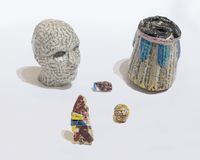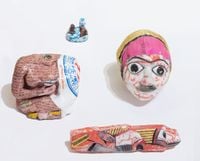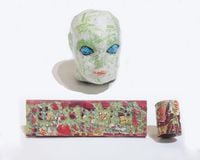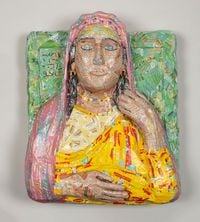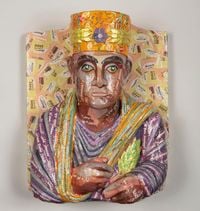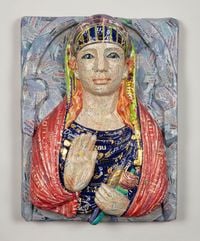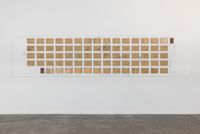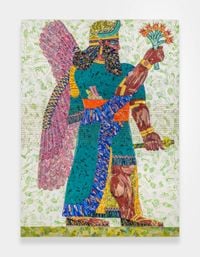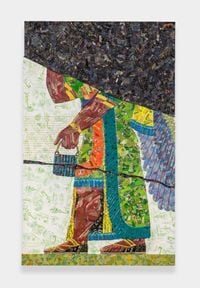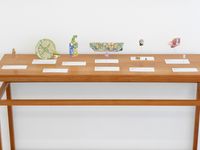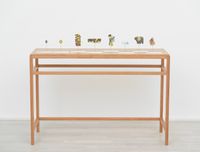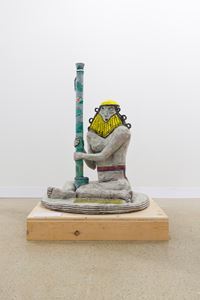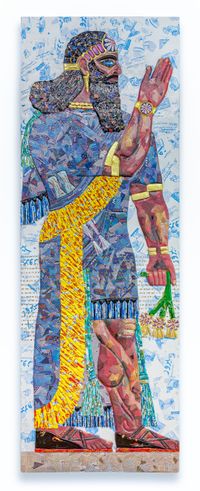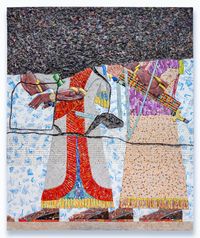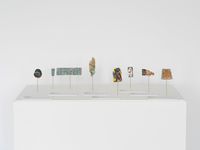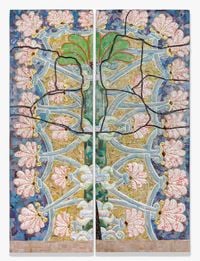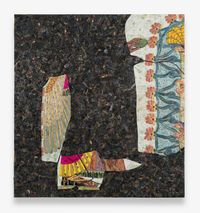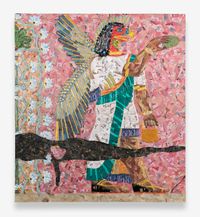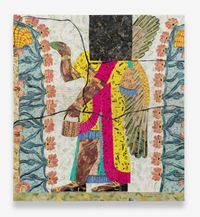Michael Rakowitz is interested in understanding common humanity and the precariousness of cultures in contemporary society. His installations and public projects initiate an important dialogue between artist and audience. By examining current events and engaging in fact-finding, the artist establishes valuable exchanges among individuals from different social, cultural and political backgrounds.
Read MoreAfter receiving his Masters in 1998, Rakowitz established a project titled paraSITE (1998-ongoing). The project creates and distributes custom inflatable structures designed for homeless people across various urban sites in New York, Chicago, Baltimore, Boston and Cambridge.
The structures are designed to attach to the exterior vents of a building's heating or ventilation system. The warm air leaving the building inflates and heats Rakowitz's structures, providing warmth and shelter for homeless people across the east coast of America. paraSITE is made in consultation with the homeless people who occupy the inflatable homes.
Rakowitz's artistic practice often contemplates his Iraqi-Jewish heritage. In his project RETURN (2004-ongoing), Rakowitz offered a drop-box service to those wishing to send objects and goods to recipients in Iraq free of charge—a rare opportunity during a time when trade infrastructure had collapsed as a result of the Iraq War.
The project developed into a multipart enterprise, with Rakowitz's importation of Iraqi dates into the United States becoming the main feature. The project demonstrates a wealth of culture prevailing in a country experiencing a time of intense difficulty.
The invisible enemy should not exist (2007-ongoing) is a project that investigates details about archaeological artefacts stolen from the National Museum of Iraq in Baghdad after the US invasion in April 2003. Rakowitz considers where the artefacts are now and the sequence of events that led them to their current whereabouts.
Rakowitz portrays Iraq's stolen artefacts through a collection of sculptures made from Arabic newspapers, Middle Eastern food packaging and cardboard. Rakowitz's reference to Iraq's cultural relics is a gesture of remembrance. By reconstructing over 7000 of Iraq's precious objects, Rakowitz is prompting important conversations among a diverse range of groups and institutions.
